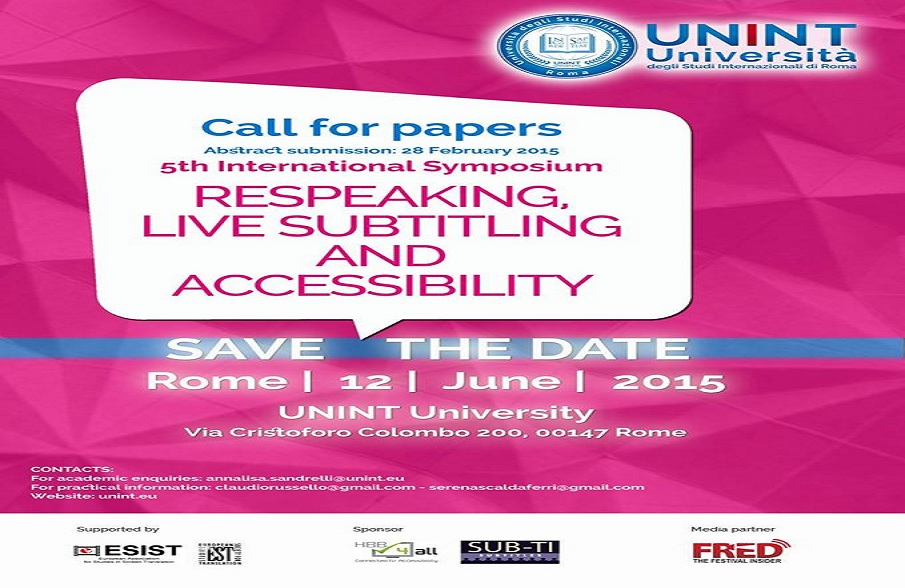Annalisa Sandrelli – organizer – 5th International Symposium Respeaking, Live Subtitling and Accessibility
FRED’s Matt Micucci interviews Annalisa Sandrelli, lecturer in English Interpreting at UNINT (University of International Studies in Rome), who will be organising the 5th International Symposium Respeaking, Live Subtitling and Accessibility.
FRED Film Radio will be media partners of the event, which will be taking place on the 16th of June 2015. Annalisa talks about the main issues that will be discussed throughout the day and even introduces the topic of respeaking, somewhat unfamiliar to most people, but that is bound to leave a mark in the future of culture accessibility. She also discusses with us the importance of accessibility in culture, and its current state in Europe, giving clear examples of territories in which such practices are utilized extremely well, and other territories in which they are disregarded.
5TH INTERNATIONAL SYNOPSIUM RESPEAKING, LIVE SUBTITLING AND ACCESSIBILITY: The 2015 International Symposium on Respeaking, Live Subtitling and Accessibility, will be held on 12 June 2015 at UNINT – Università degli Studi Internazionali di Roma, Italy.
This is the fifth symposium in the series, after Forlì (2006), Barcelona (2009), Antwerp (2011) and Barcelona (2013). These events aim to bring together academic researchers, software developers, broadcasters, consumers and anyone interested in recent developments in media accessibility and applications of speech recognition technology.
In February 2013 the European Parliament Committee on Culture and Education published a Report on the transposition of Directive 2010/13/EU on Audiovisual Media Services in EU countries. The Report found that progress is still slow and uneven throughout the EU and that further developments are needed to ensure wider access to programmes and information for all citizens via audio description, audio/spoken subtitles and sign language. Regarding live subtitling, over the past 10 years respeaking by means of speaker-dependent speech recognition (SR) technology has become the preferred method to provide live subtitles on TV and in live events in many countries.
At the same time, there have been significant improvements in speaker-independent speech recognition technology, with interesting applications in automatic subtitling and automatic speech reporting. Moreover, the deployment of the HbbTV standard in Europe is opening up more opportunities for the delivery of audiovisual content to consumers, ranging from traditional broadcast TV, video on-demand and catch-up TV services, like BBC iPlayer, as well as interactive services and Internet applications.
Clearly, these developments are also creating more demand for accessibility services.






































